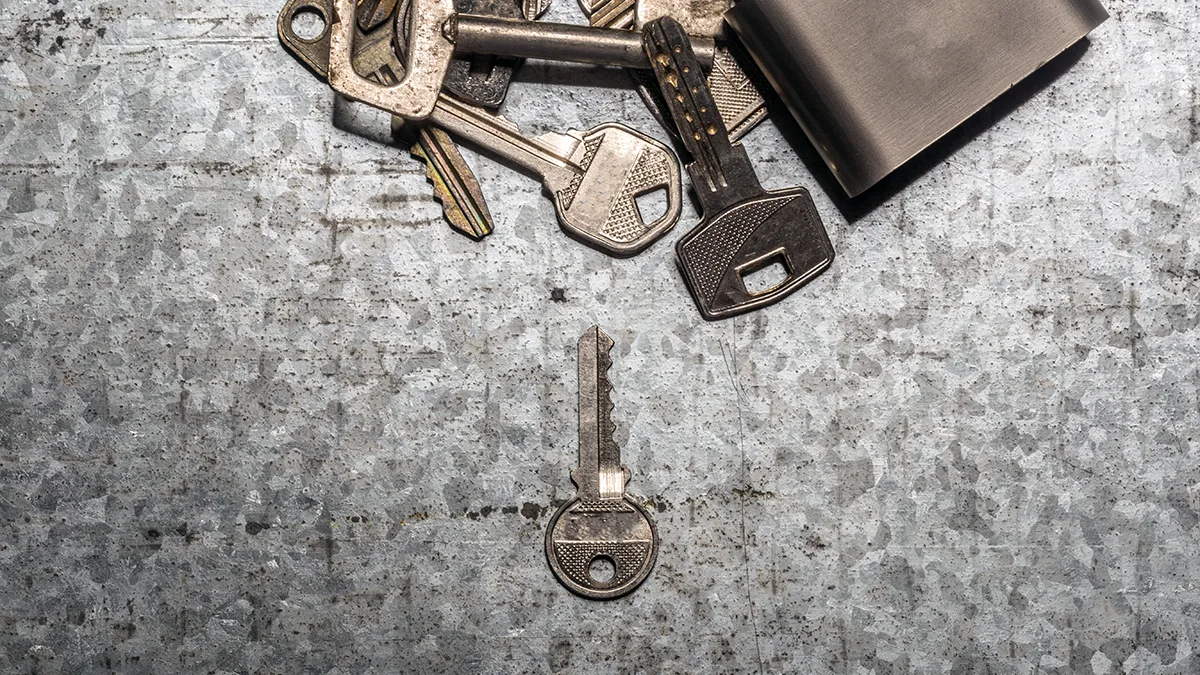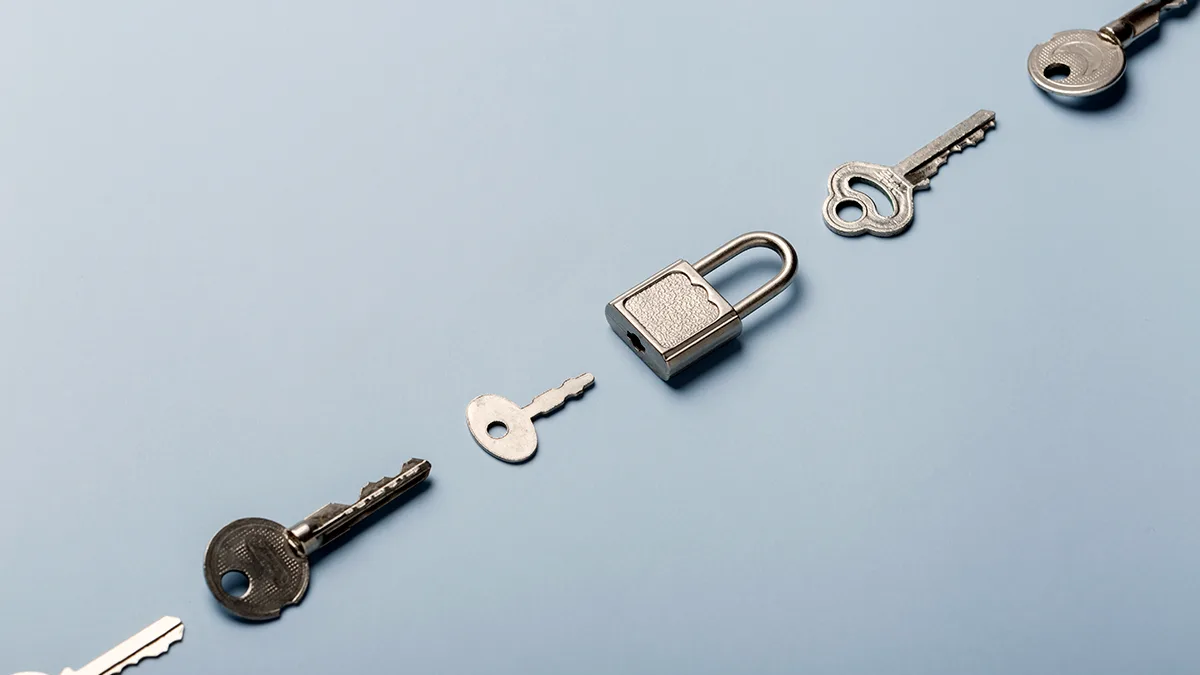The Hidden Costs of DIY Lock Repairs and How to Avoid Them. In a bustling city…
Digital vs. Traditional Locks: Which Is Right for Your Property?
Digital vs. Traditional Locks: Which Is Right for Your Property? As the landscape of security technology evolves, property owners in London are faced with a crucial decision: to choose digital locks or stick with traditional locks.
Both options have their merits and potential drawbacks, and understanding these can help you make an informed choice for your property.
This article delves into the differences between digital and traditional locks, their advantages and disadvantages, and how to determine which is the best fit for your needs in 2025 and beyond.
Understanding the Basics
Traditional Locks
Traditional locks, often referred to as mechanical locks, have been the cornerstone of security for centuries.
These locks operate using a physical key, which engages a series of pins or tumblers inside the lock mechanism.
The key’s unique shape allows it to align the pins correctly, enabling the lock to turn and grant access.
Advantages of Traditional Locks
- Simplicity and Reliability:
- Traditional locks are straightforward in design and operation.
- They do not rely on batteries or electronic components, making them less prone to malfunction.
- Cost-Effectiveness:
- Generally, traditional locks are more affordable than their digital counterparts.
- For those on a budget, they can provide a secure option without breaking the bank.
- Familiarity:
- Many people are accustomed to using traditional locks, making them an easy choice for those who may not be tech-savvy.
Disadvantages of Traditional Locks
- Physical Key Vulnerability:
- Keys can be lost, stolen, or duplicated, which poses a security risk.
- If someone obtains a key, they can easily gain access to your property.
- Limited Access Control:
- Traditional locks do not offer the ability to manage who has access to your property easily.
- You must physically change the locks or rekey them if you want to restrict access.
- Wear and Tear:
- Over time, mechanical components can wear down, leading to potential lock failure, which may require the services of a locksmith.
Digital Locks
Digital locks, also known as electronic locks, have gained popularity in recent years due to their advanced technology and convenience.
They can be operated using various methods, including keypads, biometric scanners, or mobile apps.
Digital locks eliminate the need for physical keys, relying instead on codes or electronic signals.
Advantages of Digital Locks
- Enhanced Security Features:
- Digital locks often come with advanced security features such as encryption, alarm systems, and audit trails, which can provide an additional layer of protection.
- Convenience:
- With digital locks, you can easily grant access to guests or service providers without needing to be physically present.
- Many models allow you to send temporary access codes via your smartphone.
- No Physical Keys:
- The absence of physical keys reduces the risk of lost or stolen keys compromising your security.
- User Management:
- Digital locks allow you to manage user access easily.
- You can add or revoke access for individuals as needed, making them ideal for properties with multiple occupants or frequent visitors.
Disadvantages of Digital Locks
- Higher Initial Cost:
- Digital locks typically come at a higher price point than traditional locks, which may be a consideration for budget-conscious property owners.
- Power Dependency:
- Many digital locks rely on batteries or electricity.
- If the power source fails, you may be locked out unless there is a backup option.
- Technical Issues:
- Like any technology, digital locks can experience glitches or malfunctions, which may necessitate the assistance of a locksmith.
Factors to Consider When Choosing Locks for Your London Property
When deciding between digital and traditional locks for your London property, several factors come into play:
1. Security Needs
Assess the level of security required for your property.
If you own a high-value home or business, investing in a digital lock with advanced security features may be worth considering.
For more modest properties, traditional locks may suffice.
2. Budget
Evaluate your budget for lock installation and maintenance.
While traditional locks are generally more affordable, consider the long-term investment of digital locks, which may offer enhanced security and convenience.
3. Property Type
The type of property you own whether it’s a flat, a house, or a commercial space can influence your choice.
For instance, digital locks may be more suitable for commercial properties that require frequent access for various individuals.
4. User Convenience
Consider who will be using the locks.
If you have a busy household or a rental property, digital locks can offer convenience and flexibility in managing access.
5. Future-Proofing
As we approach 2025, technology will continue to evolve.
Choosing digital locks may provide you with a more future-proof solution, as they can often be updated with new features or integrated with smart home systems.
Expert Opinion: The Role of a Locksmith
When making your decision, consulting with a professional locksmith in London can provide valuable insights.
A locksmith can assess your property’s security needs, recommend suitable lock options, and assist with installation.
They can also help you understand the implications of your choice, including potential maintenance and repair considerations.
The Importance of Professional Installation
Regardless of whether you choose digital or traditional locks, professional installation is crucial.
A qualified locksmith ensures that your locks are fitted correctly, maximising their effectiveness and longevity.
This is particularly important for digital locks, which require precise installation to function properly.
Making the Right Choice for Your London Property
In the debate of digital vs. traditional locks, the right choice ultimately depends on your specific needs and circumstances.
Traditional locks offer reliability and cost-effectiveness, while digital locks provide enhanced security and convenience.
As we look towards 2025, the growing trend of smart technology suggests that digital locks may become increasingly prevalent in London properties.
By carefully considering your security requirements, budget, and the nature of your property, you can make an informed decision that will protect your home or business effectively.
Consulting with a professional locksmith can further ensure that you choose the best option for your unique situation, providing peace of mind as you secure your property for years to come.




Comments (0)